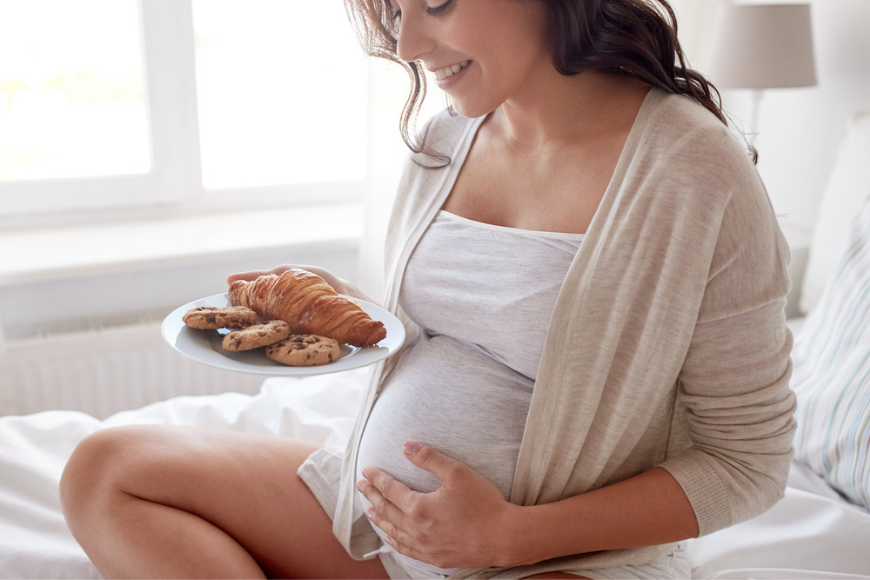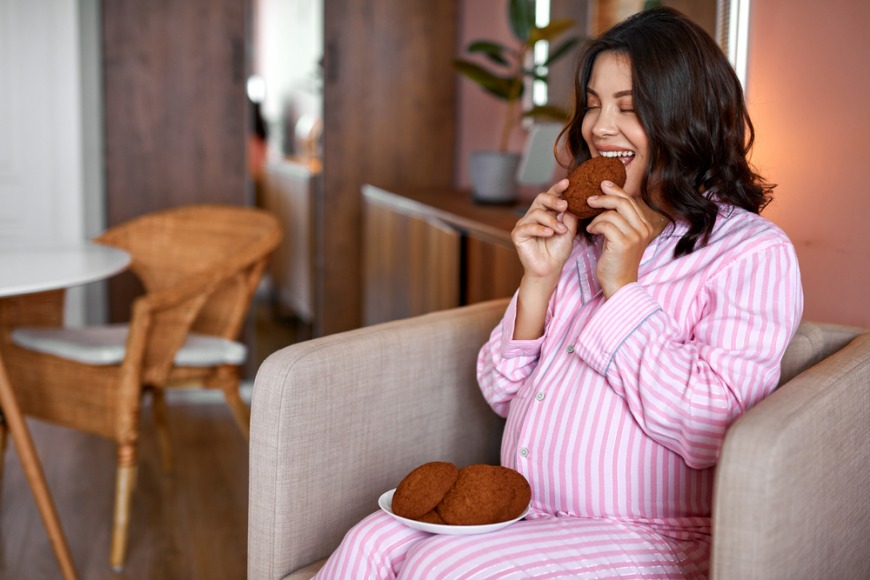Food Cravings While Pregnant and What They Mean
We take a look at pregnancy cravings with an expert — why they happen, what foods are welcome, what foods should be avoided, and more.
11 January 2021
Clarice

Food cravings are sudden urges to eat a particular type of food.
They are a real phenomenon and affect many women during pregnancy.
Common food cravings include sweet foods, salty foods, dairy products, rice and fruits. Sometimes there is an urge to eat unusual food combinations. Rarely some women can develop cravings for non food items, called as pica.
Why do cravings develop?
No one really knows why food cravings develop.
It may have something to with the effects of pregnancy hormones, eg. hcg (human chorionic gonadotrophin) which can change the way some foods taste and smell. There is also said to be increased release of Neuropeptide Y in pregnancy, which send appetite signals to the brain.
Cravings may be due to something lacking in the diet, or an increased need for certain vitamins and minerals like calcium, potassium, iron, zinc, as these requirements are increased in pregnancy.
In addition to food cravings, many pregnant women also develop a sudden dislike or aversion for certain strong-tasting foods. It is said that it may be our bodies’ way of protecting the mother and baby. Seeking comfort foods may be psychological or cultural, where we crave for foods that we associate with comfort and love.
Stress, anxiety and lack of sleep may also be contributors. However, none of these theories are backed by large-scale research.
What to do about cravings?

It is alright to give in to the occasional food cravings, as long as you continue to eat a good variety of healthy foods.
If you are craving a lot of unhealthy foods, such as sweets or chocolate, try not to over-indulge, as too much sugar can cause excessive weight gain, dental problems and have adverse effect on the pregnancy.
Foods to avoid while craving
When you are pregnant, there are a number of foods that should avoid. Foods like soft cheeses, sushi, raw eggs and undercooked meat can contain harmful bacteria.
There is no safe level of alcohol that you can have during your pregnancy, as alcohol can harm your unborn baby.
Non-food cravings while pregnant
Some pregnant women develop a craving to eat substances that are not food, such as chalk, clay, laundry starch or soap. This is a condition called pica, and it may indicate a mineral deficiency or severe iron deficiency anaemia. Fortunately, pica is rare in well-nourished women. Medical intervention is required in these cases as these cravings can be harmful.
Doctor's tips for managing unhealthy cravings
- Eat regular, healthy meals, to help prevent sudden feelings of hunger.
- Keep your pantry stocked with healthy snacks to eat between meals.
- Don’t do the grocery shopping when you are hungry.
- Choose healthy, low glycaemic index (GI) foods that keep you full for longer. Examples include unsweetened rolled oats (porridge), wholegrain breads, baked beans and fresh fruit.
- Use substitutes for cravings eg frozen yoghurt, lollies, frozen berries instead of ice cream,
- Get plenty of sleep as research has shown that people who are sleep deprived tend to crave junk food more often than healthy foods.
Food cravings and eating during pregnancy in general should be about feeling good, staying healthy, and nurturing your growing bundle of love. If you are struggling with eating in any way, help is out there. You deserve to enjoy this time—and all the yummy delicacies your heart desires.

























.png?itok=SvZPqMHH)






.png?itok=uB2ieOR7)












